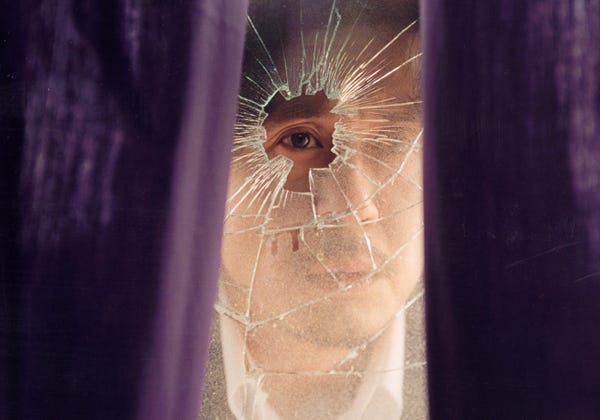Heroes of the Zeroes: Oldboy / Sympathy for Lady Vengeance
Heroes of the Zeroes is a daily, alphabetical look back at the 365 best films of 2000-2009. Today's entry counts as two films.
"Oldboy" / "Sympathy for Lady Vengeance" Rated R 2003 / 2005
Few filmmakers peel the appetite for retribution down to the bone with the ardor of Korean director Park Chan-wook — whose offbeat offerings are predictably mad and madly unpredictable.
Park’s stylish films contemplate characters’ lunatic fringes, recitations from a pulpit of pulp fiction pounded with as much fervor for emotional failure as violent empowerment. Into two-thirds of his “Vengeance Trilogy,” Park transfused as much true blood into the revenge genre as he drained.
Although technically proficient, “Sympathy for Mr. Vengeance” played like a graphic version of “John Q.” Unsurprisingly, it’s also the one moving toward an American remake. Oddly, such talk surrounded 2003’s “Oldboy” for some time, with Steven Spielberg once attached before the project wisely died.
Like banzai-violence kin to “Cast Away,” 2003’s “Oldboy” concerns a man who finds himself at time’s cruel whim. Whisked away on a rainy night by unseen abductors, alcoholic businessman Oh Dae-Su (Choi Min-Sik) awakens imprisoned in a hotel room. Every night, he’s gassed to sleep. The TV is his window to the world — clock, calendar, church, friend, lover and bearer of news that he’s been framed for his wife’s murder.
Oh Dae-Su’s name means “getting through one day at a time,” and he does so there … for 15 years. Unexpectedly freed, Oh Dae-Su tracks down his orphaned daughter as well as those who confined him.
Anyone who’s passed “Oldboy’s” endurance test knows studios would run screaming from its finale — the most sadistic and destructively wrathful conclusion to any thriller since “Se7en.” The point of no return has rarely shocked this much, with a convulsive sense of desperation and shame that colors it far beyond mere sensationalism.
A scene involving a live eel octopus (one of several not for the squeamish) establishes Oh Dae-Su as a walking appetite, and his much-revered single-take smackdown of several thugs shows his instincts hardened into pure animalism. “Oldboy’s” shattering ending is just the final destination on this exhausting, flattening and unforgettable journey through a ringer of remorse and revenge.
An orphaned daughter propels the plot of 2005’s “Sympathy for Lady Vengeance” as well. But instead of revisiting “Kill Bill’s” busted-knuckle tale of lone-wolf maternal justice, Park added surprising dimensions and deliberations to this discussion of vengeance and violence.
Teasing its tangential story out with great mystery, Park’s trilogy-closer followed Lee Geum-ja (Yeong-ae Lee), released from prison after allegedly murdering a young boy. While tracking her daughter, who’s since been adopted, she pursues the actual perpetrator by calling in favors from fellow sprung inmates.
Make sure to seek out the “Fade to Black and White” version, during which Park gradually drains the color until a conclusion that, in this format, plays like a cross of “12 Angry Men” and “The Dark Knight’s” ferryboat scene.
As a man is made to mediate the terms of his own murder and Lee Geum-ja cedes retribution to others, Park offers a perfect trilogy resolution: an acutely agonizing elegy for whatever shred of humanity is left after the impulse for vengeance has worked itself out.



